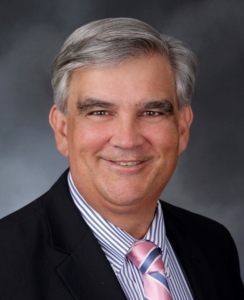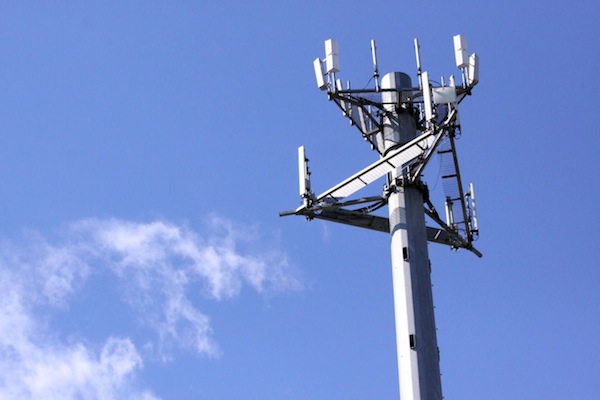Comments on FCC’s Expansion of the Over-the-Air Reception Devices Rule Due by June 3
By Gerard Lavery Lederer, Best Best & Krieger LLP.
The Federal Communications Commission has proposed an expansion of its rules for Over-the-Air Reception Devices in what it says is an effort to spur the deployment of 5G infrastructure.
The FCC’s recommended changes have the potential to severely limit the zoning oversight local governments have on wireless infrastructure being installed in their communities.
The telecommunications industry rollout of 5G service requires a massive densifying of the nation’s wireless infrastructure. To achieve this, providers are installing small cell wireless facilities — dubbed “small cells” — on buildings, billboards and poles across the country. The promise of faster mobile broadband speeds, however, is coming at a cost to local control.
Communities across California are struggling, in part, to balance the emerging technology demands for small cells within community rights of way with the interests of local residents concerned with aesthetics and the effects radiofrequency emissions can have on their health.
The OTARD rules change seeks to provide a fast track for the installation of these small cell wireless network devices on businesses and homes, and limit the ability for local governments to weigh in.
This isn’t the first time the FCC has attempted to usurp local control.
The FCC’s controversial “small cell” order is now in full effect, but is subject to an appeal before the U.S. Ninth Circuit Court of Appeals that could send the order back to the FCC.
Among its impacts, the FCC’s small cell order greatly reduces a community’s authority to limit wireless industry access within a community’s rights of way and places a cap on the annual fees communities can charge for the use of public property. It also limits local aesthetic control and shortens the timeframe agencies have to process permits for small cell wireless facilities.
In this latest push, the FCC is looking to revise its OTARD rules.
Adopted in 1999, the OTARD rules prohibit states and local governments, as well as private oversight bodies such as homeowners’ associations, from regulating and therefore restricting wireless customers from installing certain antennas. The rules apply to fixed-wireless antennas and satellite dishes of a certain size that are used by a resident to gain access to video and broadband internet service.
The FCC has proposed extending the OTARD rules to include hub and rely antennas — antennas used to transmit signals to, and receive signals from, multiple customer locations — without requiring a user to be located at the same site as the hub. This OTARD rule expansion wouldn’t be the first.
In 2000, the rule was expanded from satellite television programming devices to include fixed-wireless antennas. It was again expanded in 2004 to include wireless equipment capable of processing network functionality. Both of these earlier expansions required the installed equipment be used to serve an on-site user.
The FCC’s current proposal eliminates this on-premises user requirement.
If approved, these changes would limit local government authority to regulate the placement of hub and relay antennas of a certain size, whether an on-site occupant is using the network or not.
In moving ahead in this manner, the FCC is looking to exploit a Congressional directive (Telecommunications Act of 1996 section 207) that ensured the rights of consumers to install satellite dishes and other small antennas at their residence were not unfairly subjected to zoning oversight. The FCC’s proposal would now allow hub facilities to escape zoning oversight. And the proposal does not make clear just how many hub facilities will be permitted at a single site.
Public comments on the FCC’s proposal to broaden its current OTARD rules can be submitted until June 3 through the FCC’s Electronic Comment Filing System (Reference WT Docket No. 19-71; FCC 19-36).
If preparing comments on the proposed OTARD rules update, consider making the following points:
- Question whether the FCC has the legal authority to use OTARD rules to bypass zoning for hub devices over which Congress reserved local zoning authority.
- Ask the FCC to confirm that an OTARD overhaul as proposed would require service providers and wireless-infrastructure installers to file a permit application to confirm the small cell installs meet local public safety, historic preservation and radiofrequency emissions requirements.
- Request a clarification of size. The nature of hub sites could mean multiple over-the-air-reception devices are installed at one location. Unless a community tolerates more, this needs clarity.
- Challenge the fairness of the proposed OTARD rules component that automatically stays local enforcement upon a provider’s application to the FCC, or request that the FCC, at minimum, establishes a time frame in which the commission must act upon a complaint.
[divider] [/divider]
Disclaimer: Best Best & Krieger LLP has invited public agencies to join a coalition to object of any zoning authority encroachment this rule change could have.
[divider] [/divider]
 Gerard Lavery Lederer, a partner in Best Best & Krieger LLP’s Municipal Law practice group in Washington, D.C., is a leading national authority on marketplace solutions for integrating small cell, cable and wireless technologies into communities. He is a registered federal lobbyist and legislative counsel for TeleCommUnity with extensive experience advocating for the rights of local governments in federal legislation and regulatory activity. He can be reached at Gerard.Lederer@bbklaw.com.
Gerard Lavery Lederer, a partner in Best Best & Krieger LLP’s Municipal Law practice group in Washington, D.C., is a leading national authority on marketplace solutions for integrating small cell, cable and wireless technologies into communities. He is a registered federal lobbyist and legislative counsel for TeleCommUnity with extensive experience advocating for the rights of local governments in federal legislation and regulatory activity. He can be reached at Gerard.Lederer@bbklaw.com.





